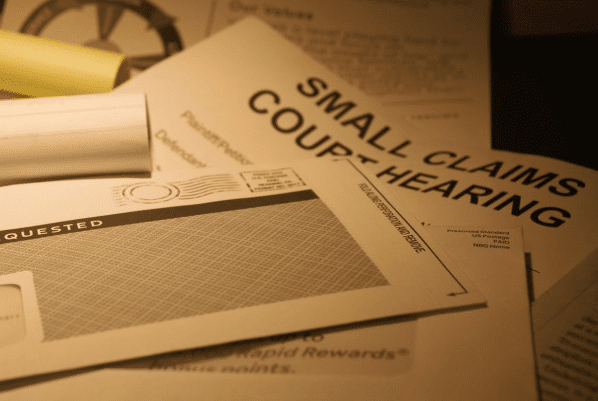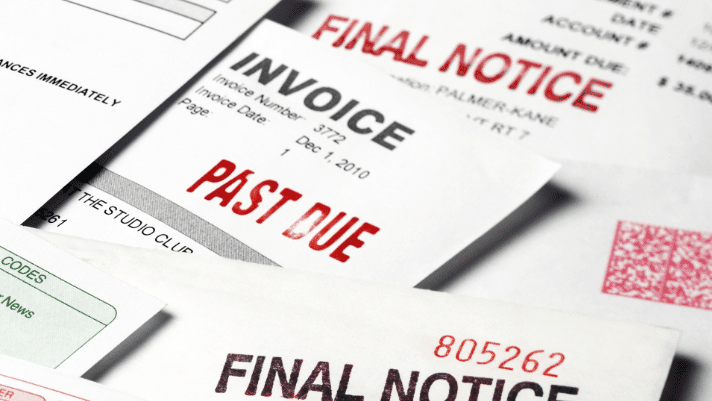In Ohio, you have 28 days to respond to a debt collection lawsuit, and the good news is there’s no fee to file. Before responding, it’s essential to check the statute of limitations on your debt. ZumaZip can assist you in drafting and filing your Answer quickly, typically in just 15 minutes. If you’re facing a lawsuit from a debt collector in Ohio, receiving court documents can indeed be overwhelming, but ZumaZip can help stop those collection calls.
No one enjoys getting sued for debt. If you are sued, you must take legal measures to protect yourself. Ensure that you open and read all court documents that the plaintiff’s attorney sent to you. Do not ignore these documents or the Summons and Complaint itself.
This article makes responding to a debt lawsuit easier and tells you how to answer a Summons for debt collection in Ohio. This includes information specific to filing in Ohio, like Ohio deadlines and forms.
Let’s get right to it.
Ohio deadline for Answering a debt collection Summons
You have 28 days to respond to a debt collection Summons in Ohio.
Under Ohio’s Rules of Civil Procedure, Rule 12(a)(1) states:
“Generally. The defendant shall serve his answer within twenty-eight days after service of the summons and complaint upon him; if service of notice has been made by publication, he shall serve his answer within twenty-eight days after the completion of service by publication.”
In other words, you have 28 calendar days, not business days, from the day you received the Summons. If the 28th day is on a weekend or national holiday, make sure your Answer is filed no later than the last business day before the deadline.
You mustn’t miss this deadline. Failure to file an Answer will lead to a default judgment against you. With a default judgment granted, creditors and debt collectors can garnish your wages, seize your property, and even freeze your bank account.
If you want the opportunity to argue your case in court, you must respond to the Summons within the 28-day time frame. Don’t put off filing your Answer until the last minute. You should allow a few extra days in case there are complications.
You should also file an Answer and appear in court if you want to make a case against garnishment if a judgment against you has already been granted.
Ohio Answer to Summons forms
The fastest way to create an Answer to a Summons and Complaint in Ohio is to use ZumaZip’s Answer form. This form is specifically formatted to fit the rules of Ohio state courts. To fill out the form, just respond to a series of questions about your case, and you’ll have a completed Answer in under 15 minutes.
Here is a sample of ZumaZip’s Answer form.
If you’d rather create an Answer on your own, here is a general Ohio Answer form you can use to respond. The basic format of Ohio’s form is very similar to ZumaZip’s form, but you have to fill in all the blanks by yourself. You can always fill this form out on your own, but using ZumaZip’s form makes it easier to respond with the proper legal language and wording. If you live in Ashtabula County, use this form
Your Answer has to be formatted a certain way and include specific information. Using one of the options above ensures you craft an Answer that meets the standards set forth by the Ohio court system. The information you include or exclude in your Answer will significantly impact the outcome of your case.
ZumaZip helps you create and file your Answer on your own.
Steps to respond to a debt collection case in Ohio
When you get sued for debt in Ohio, you should receive two documents, either by mail or in person, to begin the lawsuit. These documents are called the Summons and Complaint. The Summons notifies you of the lawsuit, while the Complaint lists the specific allegations (or claims) being made against you.
In Ohio, you must respond to a debt lawsuit within 28 days of receiving the Summons and Complaint. Follow these steps to Answer you debt collection case:
- Answer each claim listed in the Complaint.
- Assert your affirmative defenses.
- File your Answer with the court, and send a copy to the plaintiff’s attorney.
Below, we break down each of these steps in detail.
1. Answer each claim listed in the Complaint
Developing the Answer to the Complaint can be daunting, but it will be easy as pie with ZumaZip and these simple tips.
The first section of your Answer document should focus on responding to each claim that is listed in the Complaint document. The plaintiff’s Complaint will be formulated as a series of numbered paragraphs, and each paragraph is a separate claim. Read each paragraph carefully, and determine how you want to respond. Here are the three ways you can respond to each claim:
- Admit—this is like saying, “This is true.”
- Deny—this is like saying, “Prove it.”
- Deny due to lack of knowledge—this is like saying, “I don’t know.”
Many attorneys recommend making a general denial, where you deny everything in the Complaint and force the other side to prove everything. When you get sued for debt, the burden of proof is on the plaintiff or the person/company suing you. Denying their claims forces them to prove their case, and if they don’t have the necessary documents or evidence to do so, the case might get thrown out altogether.
In some states, you may need to let the court know if you want a court trial or a jury trial. You can also include a counterclaim with your Answer if you feel like your rights under the FDCPA have been violated..
You can use ZumaZip’s Answer form to respond to your debt lawsuit in just 15 minutes.
2. Assert your affirmative defenses
Once you’ve addressed each claim outlined in the Complaint, it’s time to focus on asserting your affirmative defenses in the next section of your Answer document. Affirmative defenses are legal arguments that support the dismissal, either in part or entirely, of the case against you. They allow you to demonstrate that the plaintiff lacks a valid case or that the relief they are seeking is unjust or incorrect. Additionally, affirmative defenses can highlight any wrongdoing by the plaintiff.
Here are some of the most frequently used affirmative defenses in debt collection lawsuits:
- You are not the owner or a cosigner on the account, and the lawsuit is in error.
- The contract was canceled before goods or services were delivered.
- The statute of limitations, or how long a creditor has to file a suit, has expired.
- You have proof that the debt was paid in part or in full or excused by the creditor.
- You were not informed of your rights and responsibilities as a cosigner.
- You did not agree to the contract or debt, such as identity theft or scams.
You should steer clear of a few defenses, including an inability to pay the debt, dissatisfaction with the product or services provided, or personal situations that affect finances, such as divorce.
If you feel you are entitled to compensation for wrongdoing by the plaintiff, you will make these claims as a counterclaim in your Answer. The provided form has sections for counterclaims. If developing your own Answer document, you would make counterclaims after your affirmative defenses.
3. File the Answer with the court, and send a copy to the plaintiff’s attorney
Absolutely, ensuring your Answer is filed within the 28-day window is crucial to avoid default judgment. Don’t let this task slip your mind. Consider setting a reminder on your smartphone to ensure timely filing.
You have multiple options for filing your Answer: in person, via certified or express mail, or electronically if the court allows online filing. While electronic filing offers convenience, filing in person allows you to address any potential issues with your Answer before the deadline.
Once you’ve filed your Answer with the court, make a duplicate and send it to the plaintiff’s attorneys. “Plaintiff” refers to the entity suing you. Therefore, ensure you serve the attorneys representing the creditor or debt collector suing you before the deadline as well.
ZumaZip can file your Answer for you in all 50 states.
Check the statute of limitations on debt in Ohio
The statute of limitations is the deadline or expiration date on your debt. Each state has a unique law for the statute of limitations that determines how many years a collector can collect on the debt. Once the statute of limitations on a debt has expired, collectors no longer have grounds to sue for that debt.
In Ohio, the statute of limitations on credit card debt is six years, according to Ohio Rules of Civil Procedure Section 2305.06. Likewise, Ohio’s statute of limitations for medical debt, auto loan debt, student loan debt, and personal loan debt is also six years. This means that debt collectors have only six years from the last payment on an account to sue someone for a debt they owe.
even if the statute of limitations has lapsed on your debt, collectors retain the right to initiate a lawsuit against you. It’s incumbent upon you to assert your rights and cite the Ohio statute to safeguard yourself in court. If you can substantiate that the debt exceeds the statute of limitations, the case ought to be dismissed.
Here’s a breakdown of the statute of limitations for various types of debt in Ohio:
| Debt Type | Deadline |
|---|---|
| Credit Card | 6 years |
| Medical | 6 years |
| Student Loan | 6 years |
| Auto Loan | 6 years |
| Personal Loan | 6 years |
| Judgment | 10 years |
| Mortgage | 21 years |
| Source: Ohio Rev. Code § 2305.04/.06, and § 2325.18 |
The statute of limitations clock starts when the last action is made on an account. This includes payments, making a payment plan on an account, or acknowledging the debt is owed. So, before you make any payments to a debt collector, or admit to owing a debt, check your state’s statute of limitations.
Let’s consider an example scenario:
Juan, a resident of Ohio, faced a debt collection lawsuit for an old credit card debt. His last payment towards the debt was made eight years ago, surpassing Ohio’s statute of limitations. Using ZumaZip, Willy drafted and filed his Answer, citing the expired statute of limitations as one of his affirmative defenses. Shortly after, Juan learned that the debt collector had voluntarily dismissed the case.
The FDCPA can protect you from abusive debt collectors
It’s crucial to understand that while the law prohibits lawsuits for debts past the statute of limitations, debt collectors may still attempt to pursue legal action. It falls on the consumer to bring attention to the debt’s age in court to have the action dismissed.
Fortunately, recent legislation has simplified the process of identifying time-barred debts. Previously, the statute of limitations ranged from four to fifteen years, depending on the debt type.
The countdown begins when you cease making payments on the debt, determining the remaining time within the statute of limitations. Any payment made restarts the clock, rendering the debt valid again for the statute of limitations period.
In most cases, debt collectors are barred from pursuing collections on debts older than the statute of limitations, even though the debt remains outstanding. However, failure to settle the debt may still impact your credit score.
Importantly, you cannot be legally compelled to repay a debt past the statute of limitations. The Fair Debt Collection Practices Act (FDCPA) prohibits collectors from harassing consumers regarding old debts.
Under the FDCPA, consumers are safeguarded from unfair debt collection practices, which include:
- Debt collectors cannot contact consumers outside the hours of 8:00 a.m. to 9:00 p.m.
- Debt collectors cannot contact you at your place of work if they have been notified that your employer does not allow such communication.
- Communication with third parties is limited to the consumer’s attorney or credit reporting bureaus unless the consumer gives express permission for the debt collector to do so.
- If a debt collector receives written notice that the consumer does not intend to pay the debt and asks that collection efforts cease, the debt collector cannot continue to contact the consumer except in limited circumstances.
- Debt collectors cannot use obscene or profane language in an attempt to collect a debt.
- A debt collector cannot repeatedly call in a harassing or abusive manner.
You may sue and collect statutory damages if a debt collector violates the legislation. If creditors are harassing you for an old debt, contact an experienced attorney who can help you file a lawsuit or counterclaim and manage the damages you are owed.
Ohio legal aid organizations
In every state, including Ohio, government-funded organizations offer free legal services to individuals in need. Ohio specifically hosts several such organizations. If you’re facing a debt collection lawsuit and are unable to afford legal representation, reaching out to these legal services can be immensely beneficial.
It’s important to note that each agency may have specific criteria for providing free or discounted legal assistance. To determine if they can assist you with your particular case, it’s recommended to contact these agencies directly or visit their websites for detailed information. This proactive approach ensures that you can access the appropriate legal support tailored to your circumstances.
Here are the legal aid agencies available in Ohio:
Community Legal Aid Services, Inc.
50 South Main Street
Akron, OH 44308
(866) 584-2350
https://www.communitylegalaid.org
Legal Aid of Western Ohio, Inc.
525 Jefferson Avenue, Suite 400
Toledo, OH 43604
(877) 894-4599
https://www.lawolaw.org
The Legal Aid Society of Cleveland
1223 West Sixth Street
Cleveland, OH 44113
(216) 687-1900
https://www.lasclev.org
Legal Aid Society of Greater Cincinnati
215 East Ninth Street, Suite 200
Cincinnati, OH 45202
(800) 582-2682
https://lascinti.org
Ohio State Legal Services
1108 City Park Avenue, Suite 200
Columbus, OH 43206
(800) 589-5888
https://www.oslsa.org
Seeking legal aid services based on geographical area can be an effective strategy for finding pro bono assistance. If a legal aid organization operates in your city, it’s advisable to initiate your search there. Even if the initial agency you contact is unable to assist you due to your primary address, they typically possess the resources to refer you to the appropriate agency serving your specific location. This ensures that you can access the legal support you need, tailored to your geographical area.
Whether big or small, every creditor working to collect a debt must adhere to Ohio’s Fair Debt Collection Practices Act. If you believe a creditor has violated these guidelines, talk to the attorney about a counterclaim in your Answer and how to file an official complaint against the creditor. You can also take steps to keep them from calling and harassing you from different phone numbers during the process.
File a Motion to Compel Arbitration
A Motion to Compel Arbitration can be a valuable tool in navigating a debt lawsuit, potentially keeping the dispute out of court. The first crucial step is ensuring the existence of a valid arbitration agreement, typically found in the original contract with the lender. It’s essential to carefully review this agreement to determine if it includes an arbitration clause.
Arbitration serves as an alternative dispute resolution method, offering a way to settle disputes outside of traditional court proceedings. Arbitrators pledge to uphold fairness and impartiality, providing an avenue for presenting evidence and arguments in support of your case. Many contractual agreements incorporate arbitration clauses, making it a viable option to avoid litigation against debt collectors.
Utilizing ZumaZip can streamline the process of crafting a Motion to Compel Arbitration, offering assistance tailored to your specific situation. Consider the following example illustrating how arbitration can offer distinct advantages over courtroom battles in resolving debt disputes.
Example: Carlos found himself facing a $7,000 credit card debt that he couldn’t manage, leading him to cease payments two years ago. Subsequently, the credit card company initiated legal action against him. Carlos, after reviewing his credit card agreement, discovered an arbitration clause. Leveraging this, he submitted a Motion to Compel Arbitration. During arbitration, Carlos elucidated that his initial debt was only $2,500, stemming from financial hardship due to job loss. Despite seeking an extension, he was met with punitive interest rates, late fees, and other charges, exacerbating the debt. Ultimately, arbitration resulted in an agreement to settle the debt at its original amount of $2,500. This resolution spared both parties the expenses tied to a full-blown lawsuit, culminating in a mutually satisfactory outcome.
Key takeaways
This article has a lot of information, so let’s summarize what you need to do to respond to your Summons for debt collection in Ohio.
- You have 28 days to respond to a debt collection lawsuit in Ohio.
- You should respond to the lawsuit by filing an Answer document with the court where you reply to each claim listed in the Complaint and assert your affirmative defenses.
- ZumaZip can help you draft and file an Answer to your debt lawsuit in just 15 minutes.
- Don’t forget to make a copy of your Answer and send it to the plaintiff’s attorney.
- The statute of limitations on most types of debt in Ohio is six years.
- Ohio has legal aid organizations that can help you if you cannot afford an attorney.
Once the case is disposed of and judgment has been made, you can begin working on rebuilding your credit after a debt lawsuit.
Good Luck!
What is ZumaZip?
ZumaZip is a convenient solution designed to streamline your response to a debt collection lawsuit. Here’s a breakdown of what you can expect when you use ZumaZip:
Firstly, you’ll access our user-friendly web application, which guides you through the process step by step. You’ll be prompted to answer a series of questions related to your specific situation. Once you’ve completed the questionnaire, you have the option to either print out the finalized forms and mail them to the appropriate courts yourself, or you can opt to utilize ZumaZip’s services to file them on your behalf. Additionally, if you choose this option, an attorney will review your document for added peace of mind.
If you’re seeking guidance on how to effectively respond to a debt collection lawsuit, ZumaZip can provide the assistance you need. Feel free to explore our FAQs for more information on what ZumaZip has to offer.
What if I haven’t been sued yet?
If you’ve only received a collections notice, but not a lawsuit, the best way to respond is with a Debt Validation Letter. When a debt collector contacts you in any way, whether it’s by phone or mail, you can respond by formally requesting a debt validation with a Debt Validation Letter . This letter notifies the collector that you dispute the debt and forces them to provide proof you owe the debt. They can’t call you or continue collecting until they provide validation of the debt. This flowchart shows how you can use a Debt Validation Letter to win.
Get started with a Debt Validation Letter here.
How to Answer a Summons for debt collection in all 50 states
Here’s a list of guides on how to respond to a debt collection lawsuit in each state:
- Alabama
- Alaska
- Arizona
- Arkansas
- California
- Colorado
- Connecticut
- Delaware
- Florida
- Georgia
- Hawaii
- Idaho
- Illinois
- Indiana
- Iowa
- Kansas
- Kentucky
- Louisiana
- Maine
- Maryland
- Massachusetts
- Michigan
- Minnesota
- Mississippi
- Missouri
- Montana
- Nebraska
- Nevada
- New Hampshire
- New Jersey
- New Mexico
- New York
- North Carolina
- North Dakota
- Ohio
- Oklahoma
- Oregon
- Pennsylvania
- Rhode Island
- South Carolina
- South Dakota
- Tennessee
- Texas
- Utah
- Vermont; Vermont (Small Claims court)
- Virginia
- Washington
- West Virginia
- Wisconsin
- Wyoming
Guides on how to beat every debt collector
Hey there! Facing off against a debt collector can feel like a daunting challenge, but fear not! We’re here to help you navigate through it all with our handy guides designed to assist you in beating every debt collector you encounter. Whether you’re facing a new lawsuit or dealing with a persistent collector, we’ve got your back. Stay positive, stay informed, and let’s tackle this together!
- Absolute Resolutions Investments LLC
- Accredited Collection Services
- Alliance One
- Amcol Clmbia
- American Recovery Service
- Asset Acceptance LLC
- Asset Recovery Solutions
- Associated Credit Services
- Autovest LLC
- Cach LLC
- Cavalry SPV I LLC
- Cerastes LLC
- Colinfobur
- Covington Credit
- Crown Asset Management
- CTC Debt Collector
- Cypress Financial Recoveries
- Delanor Kemper & Associates
- Eagle Loan of Ohio
- Educap
- Estate Information Services
- FIA Card Services
- Forster & Garbus
- Freshview Solutions
- Fulton Friedman & Gullace LLP
- Harvest Credit Management
- Howard Lee Schiff
- Hudson & Keyse LLC
- Integras Capital Recovery LLC
- Javitch Block
- Jefferson Capital Systems LLC
- LVNV Funding
- Mannbracken
- Mariner Finance
- Medicredit
- Michael J Adams PC
- Michael J Scott
- Midland Funding LLC
- Mullooly, Jeffrey, Rooney & Flynn
- Mountain Land Collections
- MRS Associates
- National Collegiate Trust
- Nationstar Foreclosure
- Northstar Capital Acquisition
- NCEP LLC
- NRC Collection Agency
- OneMain Financial
- Palisades Collection LLC
- Pallida LLC
- Paragon Revenue Group
- Pinnacle Collections Agency
- PMAB LLC
- Portfolio Recovery Associates
- Provest Law
- PYOD LLC
- Reunion Student Loan Finance Corporation
- Revenue Group
- Regents and Associates
- RSIEH
- Salander Enterprises LLC
- Second Round Sub LLC
- Security Credit Services
- Sherman Financial Group
- Suttell and Hammer
- T-Mobile
- Transworld Systems
- Tulsa Teachers Credit Union
- UCB Collection
- Velo Law Office
- Velocity Investments
- Waypoint Resource Group
- Weinberg and Associates
- Wolpoff & Abramson
Settle your medical debt
Having a health challenge is stressful, but dealing medical debt on top of it is overwhelming. Here are some resources on how to manage medical debt.
- Am I Responsible for My Spouse’s Medical Debt?
- Do I Need a Lawyer for Medical Bills?
- Do I Need a Lawyer to Fight Medical Bill Debt?
- Does Bankruptcy Clear Medical Debt?
- How Much Do Collection Agencies Pay for Medical Debt?
- How to Find Medical Debt Forgiveness Programs
- Is There a Statute of Limitations on Medical Bills?
- Medical Debt Statute of Limitations by State
- Summoned to Court for Medical Bills — What Do I Do?
- Summoned to Court for Medical Bills? What to Do Next
Stop calls from Debt Collectors
Do you keep getting calls from an unknown number, only to realize that it’s a debt collector on the other line? If you’ve been called by any of the following numbers, chances are you have collectors coming after you, and we’ll tell you how to stop them.



































